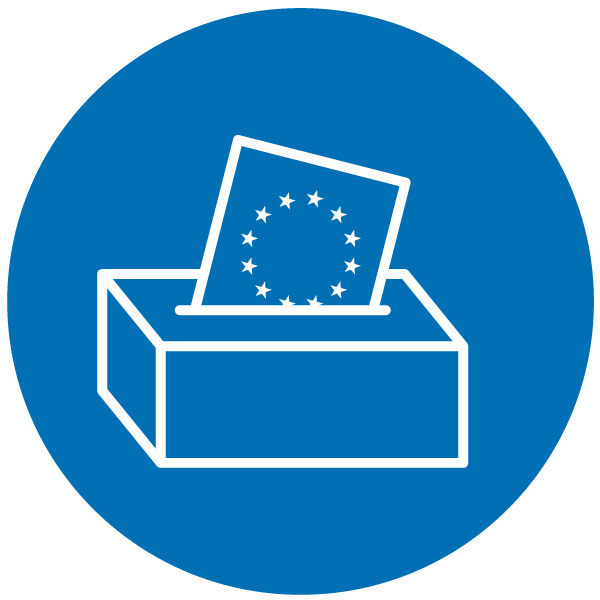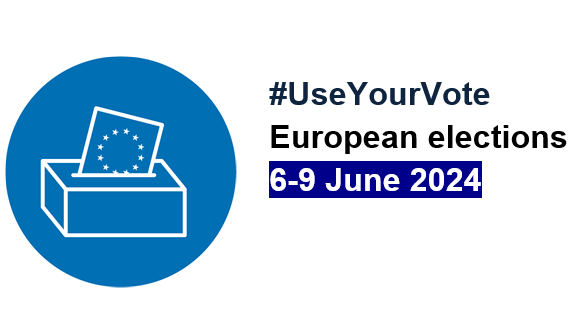
Madrid, 22 March 2024. All European citizens have an important electoral commitment between the sixth and ninth of June. This appointment with the ballot box represents a unique opportunity to choose the representatives who will defend our rights in the European Parliament. In this call, we all have the collective responsibility to decide the future of Europe. By electing the Members of the European Parliament who will represent us for the next five years, we are deciding on the people who will -among other things- define and approve new legislation, vote on new trade agreements, or scrutinising the other institutions of the European Union (EU). Likewise, they will be responsible for ensuring the correct use of Union funds or initiating investigations into certain issues. Moreover, note that Members of the European Parliament will also influence the selection of the new presidency of the European Commission.
As a consumer, how do these elections affect me?
In practice, the elected representatives will be actively involved in the construction of new European rules that will address the most of the priorities that affect citizens. For example, they will address issues affecting the environment, security, migration, social policies, the economy, the rule of law, and, of course, consumer rights and protection. That is why the European Consumer Centres Network (ECCNet) encourages all Europeans to use their vote and have their say on the topics that matter most to them in the upcoming European Parliament elections.
| Roberta Metsola, President of the European Parliament: |
All Europeans must vote, as democracy in the European Union is more important than ever. Your vote will decide the direction our Union will take. |
Consumer protection, a strategic pillar of European policy
Consumer protection policies are a strategic pillar of EU policy. Consumer protection policies are a fundamental part of EU policy to ensure the smooth and efficient functioning of the Single Market. Thanks to them, Europe provides additional protection to vulnerable consumers, promotes fairer markets, and encourages healthier and more sustainable consumption habits. In fact, the Treaty on the Functioning of the EU and the Charter of Fundamental Rights of the Union already set out the objective of promoting consumers´ interests and ensuring a high level of protection. Furthermore, they state that consumers' rights to information and education, and the right to organise themselves to protect their interests should be promoted. The Members of the European Parliament elected in the upcoming elections will be responsible for defining the roadmap that will shape the future of consumer rights. Voting is the way to influence the direction it will take.
What's at stake in the upcoming European elections?
With the upcoming European elections, the future EU action plan for consumer protection is at stake. With the "New Consumer Agenda", which was approved at the end of 2020 for the period 2020-2025, Europe defined five priority areas of action. Throughout this time, the institutions have been working on building a fair ecological transition, a safe digital transformation, defending consumers against unfair commercial practices, specially protection for vulnerable consumers, as well as ensuring a framework to protect the Single Market against other global markets. And not only that, Europe is already looking to the future to respond to the new needs of today and to create a more equal, more inclusive, safer, more sustainable, and fairer future for consumers. A future in which consumer rights are protected in a harmonised and efficient way. A future in which all Europeans enjoy a high level of protection against the challenges of an increasingly digitalized society, and in which fundamental rights are guaranteed.
To this end, the EU is already working to incorporate new security measures in payment services, to ensure instant transfers in euros without extra charges, or to increase protection for people taking out consumer credit. Europe also wants a more environmentally friendly circular economy through a new right to repair to make it easier to repair household appliances. Another challenge the Union faces is to improve transparency and provide more information to consumers so they can make informed purchasing decisions, especially with regard to environmental declarations. The European institutions are also developing new rules in order to ensure greater safety of children's toys and protect minors from the most harmful chemicals such as endocrine disruptors.
Regarding mobility, legislation is already being reviewed to strengthen the rights of passengers - especially those with reduced mobility - in all modes of transport. Moreover, in relation to online commerce, Europe also wants to eliminate barriers that persist in the digital market for products such as e-books, music, software, and online games. Similarly, European institutions wants to make access to cross-border parcel services easier and cheaper. Likewise, our institutions are concerned by digital addiction, dark patterns, and manipulation. That is why Europe wants to be the first to establish rules to protect consumers - especially minors and vulnerable people - from all these threats; to create the world's first rules on artificial intelligence, or to have better access and use of the data generated by connected products (Internet of Things). In the same way, Europe also needs new rules on collective redress, damages caused by defective products, or to simplify out-of-court dispute resolution mechanisms.
There is no doubt that Europe is working on many issues, all of which have a direct impact on the daily lives of every citizen living in the EU. Therefore, the upcoming European elections are a unique opportunity to decide on the future of the Union and to make further progress in building and consolidating these priority areas and many other strategic policies that will affect us all.
How to vote?
The European elections will take place between June 6th and 9th, 2024. The European Parliament has set up a website offering information in 24 languages, with full details on how to vote in each of the 27 Member States that currently make up the European Union.
>>> Here, you can find all the details about:
- Which day the elections are held in your country
- Where to vote
- Requirements to vote
- Whether you need to register in advance
- Whether you can vote by post or electronically
- How many MEPs each Member State elects and how they are elected
- Which political parties you can vote for, and much more information…

Further information: